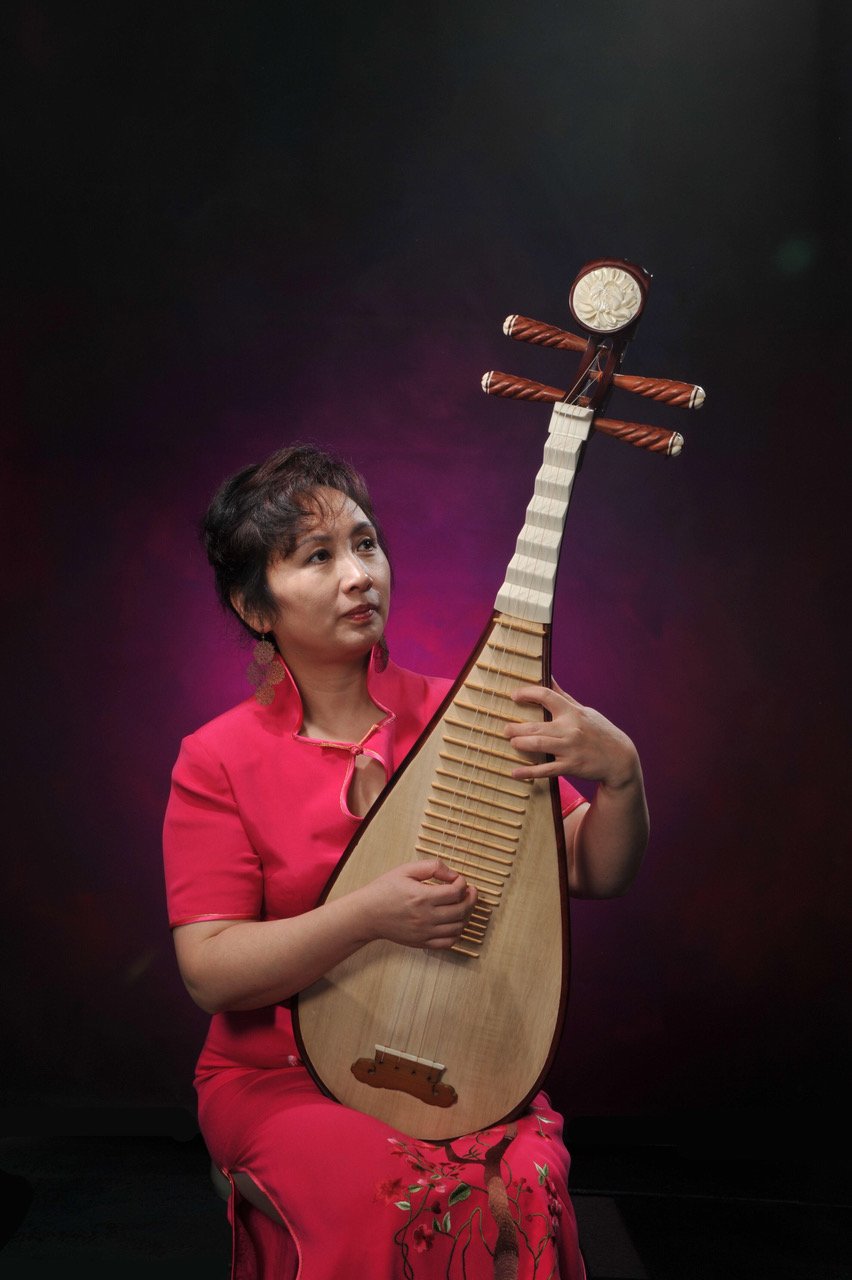EAST MEETS WEST
December 02, 2023
Danse Bacchanale
From Samson et Dalila, an opera by Camille Saint-Saëns (1835-1921)
This piece is from the Biblical story of Samson and Delilah. Samson is the heroically strong young man poised to liberate the Israelites from the evil Philistines. As a Nazrite, like John the Baptist, he forswears all wine, grapes, and even vinegar, is forbidden from cutting his hair or touching any corpses, among other things. However, he has a vice: women. Philistine women, in particular. He marries a Philistine, frequents Philistine prostitutes, and, ultimately, is seduced by Delilah, another Philistine, who cuts off his hair, the source of his strength.
He is blinded and imprisoned. After a while, he is paraded to the Philistine temple and chained to the pillars. The Bacchanale takes place at this point, where the evil Philistines dance themselves into a frenzy, celebrating the capture of the great hero, Samson.
During his imprisonment, his hair grows back, so after this dance and celebration, he musters up one more feat of strength and pushes out the pillars, collapsing the temple, killing everyone.
“Little Sisters of the Grassland”
A Concerto for Pipa and Orchestra, by Wu Zuqiang (b. 1927)
(Notes by Jin Zhang)
In early 1972, composers Wang Yanqiao (b. 1937), Wu Zuqiang, and pipa player Liu Dehai (b. 1937) collaborated to create the pipa concerto. The composers provided an explanation on the cover page, stating, “Based on the story of Mongolian children Yurong and Longmei protecting the sheep during a snowstorm." The composition incorporated the theme song from the popular 1964 animated film "Heroic Little Sisters of the Grassland” and a well-known Inner Mongolian folk song. The score was completed in 1972, and the piece was premiered in 1976.
I have a special memory with this piece. When the Boston Symphony Orchestra went to Beijing in the early 80s, the orchestra had an open rehearsal. I went to watch. The orchestra rehearsed this piece with the soloist Liu De Hai, conducted by Seiji Ozawa. At the time, I just started my career as a professional musician. That was an exciting moment and remains in my memory.
“Variations on a Theme of Tu Nation”
by Jin Zhang (b. 1958)
(Notes from the Composer)
Tu is the name of a small nation in Hu Nan Province in central China. I learned this folk song while I went there to study folk music with a Grant from the Canada Council for the Arts. I composed the piece after returning to Vancouver. The first version of the piece was written for a string quartet with a symphony orchestra, and had six variations. I revised the piece for erhu solo with the orchestra by request, when an orchestra from Taiwan came to Vancouver and collaborated with a local soloist. The version in the program has seven variations. More recently, I added another variation and a short cadenza.
Even though the piece is not program music, and there is no specific content, the different variations create different themes: mountain, forest, foggy day, shimmering light and festivals in villages, the environment of the Tu nation.
Scheherazade
By Nicolai Rimsky-Korsakov (1844-1908)
This is a symphonic suite in 4 movements, composed in the same summer (1888) as his Russian Easter Overture. The movements, originally entitled Prelude, Ballade, Adagio and Finale, were related pictures from the One Thousand and One Nights.
Also called the Arabian Nights, these were stories told by the Sultana Scheherazade on successive nights. The Persian Sassanid King of kings Shahryar decided that all women were faithless and false, so he decided he would take the virtue of each of his virgin wives, and kill them after consummation, one by one. Scheherazade had a different plan. She started with a story that was ostensibly for her little sister, and then ended it with a cliffhanger for the next day, thus avoiding execution. She did this for 1001 nights in a row, during which time Shahryar grew in wisdom and in his love for her, so that, by the end, when she had no more to tell, he no longer mistrusted women, made Scheherazade his queen, and became a much more benevolent ruler.
The 4 movements are:
1) The Sea and Sinbad's Ship
2) The Story of the Kalendar Prince
3) The Young Prince and the Young Princess
4) Festival at Baghdad. The Sea. The Ship Breaks against a Cliff Surmounted by a Bronze Horseman
Jun Rong
Jun learned Erhu from her father ever since she was a child. Then, she studied and received a bachelor's degree with honours from the China Conservatory of Music. After graduation, Jun worked at the China Opera and Dance Orchestra as an erhu soloist. Jun, along with the China Opera and Dance Orchestra, performed in multiple countries across the world.
After moving to Canada, Jun continued her Erhu career in Vancouver's growing multicultural music scene. She has participated in large-scale symphony concerts, chamber concerts, film dubbings, CD recordings, and music festivals. Her musical skills gained wide recognition from industry professionals, and audiences from all cultures are captivated by her performances.
Jun has performed with major symphony orchestras in Canada, such as the Vancouver Symphony Orchestra, Victoria Symphony Orchestra, the Calgary Philharmonic Orchestra and the Vancouver City Opera. The Vancouver Chinese Cultural Centre invited Jun to be a soloist in collaboration with the internationally renowned Vega String Quartet from New York. Concert critics from the Vancouver Sun newspaper called it "a brilliant Erhu performance."
Jun has released several CDs. In particular, Jun has published a highly academic commemorative CD for the 120th anniversary of Liu Tianhua called "10 masterworks of Liu Tianhua" in collaboration with prestigious Chinese music publishing houses. (Liu Tianhua was the most important Chinese composer for erhu music in the 20th century).
Jun Rong is an Erhu instructor at Capilano University and teaches the very first Erhu Major in Vancouver.
GiuLian Liu
GuiLian Liu was born in Shanghai and is one of the world’s premiere pipa (lute) masters. Liu graduated from the Central Conservatory of Music, and has performed throughout the world. Her superb expressiveness and impeccable techniques were praised by renowned conductors Herbert von Karajan and Seiji Ozawa. She was featured performing in the Oscar winning documentary From Mao to Mozart – Isaac Stern in China.
After GuiLian Liu moved to Vancouver, she has played with many groups and appeared in concerts, festivals and recordings. She was invited to perform a pipa concerto with Vancouver Symphony. She also played with the San Francisco Symphony in a Chinese New Year Celebration Concert. Currently, Liu is an Artistic Director of the “Pearl Music Studio”. She has been invited to teach in masterclasses and adjudicate many music competitions in China.
EAST MEETS WEST
December 02, 2023
8 PM | Shaughnessy
-
Bacchanale from Samson and Delilah
-
Little Sisters of the Grassland, featuring Guilian Liu (Pipa)
-
Variation on an Theme from Tu Nation, featuring Jun Rong (Erhu)
- Composed by Music Director Jin Zhang
-
Scheherazade
LOCATION
Shaughnessy Heights United Church
1550 W 33rd Avenue, Vancouver B.C. V6M 1A7


